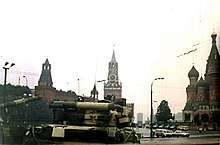
As centuries go, this has been one of the most amazing: inspiring, at times horrifying, always fascinating. ~ Walter Isaacson

Cruelty and human brutality exceeded the worst expectations. In the trenches . . . seeds were sown for an era in which humans were viewed as material, not as individuals. ~ Guido Knopp

The major political event of the twentieth century is the death of socialism. ~ Irving Kristol
The twentieth century was the period between January 1, 1901 and December 31, 2000.
A
- Richard Dressler: Most people believe the twentieth century was defined by the death struggle of capitalism versus communism, and that fascism was but a hiccup. Today we know better. Communism was a fool's errand, the followers of Marx gone from this Earth; but the followers of Hitler abound and thrive. Hitler, however, had one great disadvantage. He lived in a time when fascism, like a virus, like the AIDS virus, required a strong host in order to spread. Germany was that host, but strong as it was, Germany couldn't prevail. The world was too big. Fortunately, the world has changed. Global communication, cable TV, the internet. Today the world is smaller, and the virus no longer needs a strong host in order to spread. This virus is airborne... One more thing; let no man call us crazy. They called Hitler crazy, but Hitler wasn't crazy. He was stupid. You don't fight Russia and America. You get Russia and America to fight each other, and destroy each other.
- The Sum of All Fears (31 May 2002), written by Paul Attanasio and Daniel Pyne, California: Paramount Pictures Corporation.
B
- The last century was defined by physics. From the minds of the world’s leading physicists there flowed a river of ideas that would transport man kind to the very pinnacle of wonder and to the very depths of despair. This was a century that began with the certainties of absolute knowledge and ended with the knowledge of absolute uncertainty. It was a century in which physicists developed theories that would deny us the possibility that we can ever properly comprehend the nature of physical reality. It was also a century in which they built weapons with the capacity utterly to destroy this reality.
- Jim Baggott, The Quantum Story: A History In 40 Moments (2011), Preface.
- The impact of that war on the United States was immense, appalling, and is still felt today [in 1998].
- Hugh Brogan, a professor of history., as quoted in ‘The Most Profound Changes’, article of Awake! magazine, 1999, 12/8.
- [This century has been called] the century of extremes, . . . in which human vices reached unfathomable depths. [She notes that it has been] a century of great progress [and in some places of] unprecedented economic growth ... [At the same time, however, poor urban areas face a bleak future of] ... overcrowding and a disease pattern linked to poverty and an unhealthy environment.
- Gro Harlem Brundtland, as quoted in ‘The Most Profound Changes’, article of Awake! magazine, 1999, 12/8.
D
- The speed of its collapse has exceeded all the other great landslides of European history, [and] it happened through natural causes ... the rise, development and collapse of the Soviet Union, ... [was] one of the most dramatic spectacles of the twentieth century.
- The book Europe—A History, by Norman Davies, as quoted in ‘The Most Profound Changes’, article of Awake! magazine, 1999, 12/8.
- [The Soviet Union was] a vast multinational empire already sinking into irreversible decline.
- Down With Big Brother, a book by Michael Dobbs, as quoted in ‘The Most Profound Changes’, article of Awake! magazine, 1999, 12/8.
H
- The peoples of Western Europe and North America seemed to have every reason to greet the twentieth century as the dawn of a new and happier age in the history of mankind.
- Michael Howard, as quoted in ‘The Most Profound Changes’, article of Awake! magazine, 1999, 12/8.
I
- The First World War was a landmark in the history of East Asia and of the United States in many ways.
- Akira Iriye, a professor of history at Harvard University., as quoted in ‘The Most Profound Changes’, article of Awake! magazine, 1999, 12/8.
- As centuries go, this has been one of the most amazing: inspiring, at times horrifying, always fascinating.
- Walter Isaacson, as quoted in ‘The Most Profound Changes’, article of Awake! magazine, 1999, 12/8.
K
- August 1, 1914: No one suspected that the 19th century, which had presented Europeans with a long period of peace, ended on that day; and no one noticed that the 20th century actually began only at that time—with a time of war lasting three decades and demonstrating what men can do to fellow humans.
- Guido Knopp, as quoted in ‘The Most Profound Changes’, article of Awake! magazine, 1999, 12/8.
- Cruelty and human brutality exceeded the worst expectations. In the trenches . . . seeds were sown for an era in which humans were viewed as material, not as individuals.
- Guido Knopp, as quoted in ‘The Most Profound Changes’, article of Awake! magazine, 1999, 12/8.
- The major political event of the twentieth century is the death of socialism.
- Irving Kristol, Neo-Conservatism: The Autobiography of an Idea (1995)
P
- Revolution rather than reform was necessary ... but it took a major war, the First World War, and the consequent chaos, to precipitate the revolution proper.
- Geoffrey Ponton, as quoted in ‘The Most Profound Changes’, article of Awake! magazine, 1999, 12/8.
R
- [T]he history of the 20th century was basically that of the swath of destruction left across the globe by socialist ideas, from the international socialism of the Bolsheviks and the Soviet Union to the national socialism of Adolf Hitler and his National Socialist German Workers' Party.
- Glenn Reynolds, "Socialism not as hot as its spokesman" (11 February 2016), USA Today
S
- Thanks to ideology, the 20th century was fated to experience evildoing on a scale calculated in the millions. This cannot be denied, nor passed over, nor suppressed.
- Aleksandr Solzhenitsyn in The Gulag Archipelago (1973)
T
- Anyone desiring a quiet life has done badly to be born in the twentieth century.
- Attributed to Leon Trotsky, quoted in Isaiah Berlin. "Political Ideas in the Twentieth Century".
External links

This article is issued from
Wikiquote.
The text is licensed under Creative
Commons - Attribution - Sharealike.
Additional terms may apply for the media files.